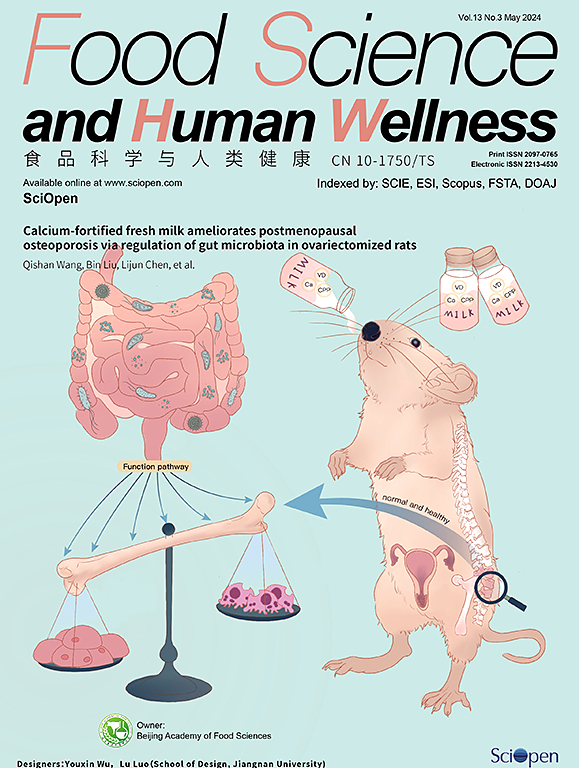Food-derived peptides with inhibitory capacity for HMG-CoA reductase activity: a potential nutraceutical for hypercholesterolemia
IF 7.4
1区 农林科学
Q1 FOOD SCIENCE & TECHNOLOGY
引用次数: 0
Abstract
Cardiovascular diseases (CVDs) are the leading global cause of mortality and disease burden. Statins are the most prescribed lipid-lowering drugs to treat hypercholesterolemia and prevent CVDs. The biochemical mechanism of statins consists of competitive inhibition of the 3-hydroxy-3-methylglutaryl-coenzyme A reductase enzyme (HMG-CoAR), the limiting enzyme in cholesterol biosynthesis. Due to statin intolerance in some patient groups, the search for new inhibitors is a field of great interest. This review focusses on the studies reporting the inhibitory effect of protein hydrolysates and biopeptides on the HMG-CoAR enzyme activity. The analysis of the action mechanism and physicochemical characteristics of the HMG-CoAR inhibitory peptides revealed that the molecular weight, amino acid composition, charge, and polarity are key aspects of the interaction with the HMG-CoAR enzyme. In conclusion, this review reveals the potential of using food peptides as new cholesterol-lowering agents and opens a new interesting field of research. However, clinical approaches are mandatory to confirm their therapeutic hypercholesterolemic effect.

具有 HMG-CoA 还原酶活性抑制能力的食品肽:治疗高胆固醇血症的潜在营养保健品
心血管疾病(cvd)是导致死亡和疾病负担的主要全球原因。他汀类药物是治疗高胆固醇血症和预防心血管疾病最常用的降脂药物。他汀类药物的生化机制是竞争性抑制3-羟基-3-甲基戊二酰辅酶A还原酶(HMG-CoAR),而HMG-CoAR是胆固醇生物合成的限制性酶。由于他汀类药物不耐受在一些患者群体中,寻找新的抑制剂是一个非常感兴趣的领域。本文综述了蛋白水解物和生物多肽对HMG-CoAR酶活性抑制作用的研究进展。对HMG-CoAR抑制肽的作用机理和理化特性分析表明,分子量、氨基酸组成、电荷和极性是影响HMG-CoAR酶相互作用的关键因素。综上所述,本文综述揭示了利用食物肽作为新型降胆固醇剂的潜力,开辟了一个新的研究领域。然而,临床方法是强制性的,以确认其治疗高胆固醇血症的效果。
本文章由计算机程序翻译,如有差异,请以英文原文为准。
求助全文
约1分钟内获得全文
求助全文
来源期刊

Food Science and Human Wellness
Agricultural and Biological Sciences-Food Science
CiteScore
8.30
自引率
5.70%
发文量
80
审稿时长
28 days
期刊介绍:
Food Science and Human Wellness is an international peer-reviewed journal that provides a forum for the dissemination of the latest scientific results in food science, nutriology, immunology and cross-field research. Articles must present information that is novel, has high impact and interest, and is of high scientific quality. By their effort, it has been developed to promote the public awareness on diet, advocate healthy diet, reduce the harm caused by unreasonable dietary habit, and directs healthy food development for food industrial producers.
 求助内容:
求助内容: 应助结果提醒方式:
应助结果提醒方式:


